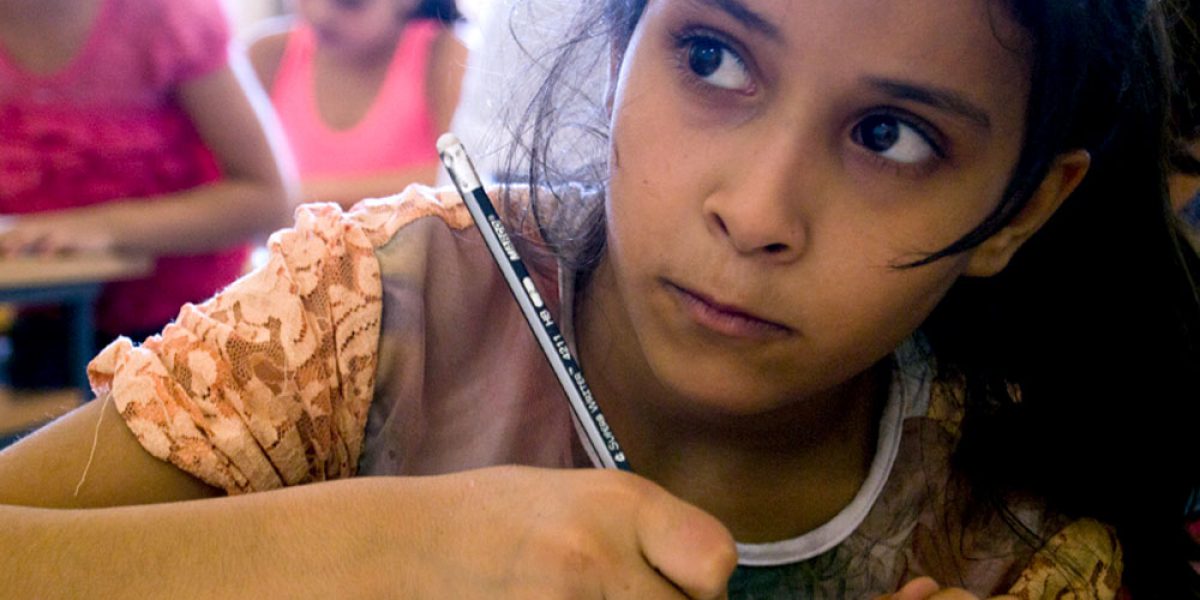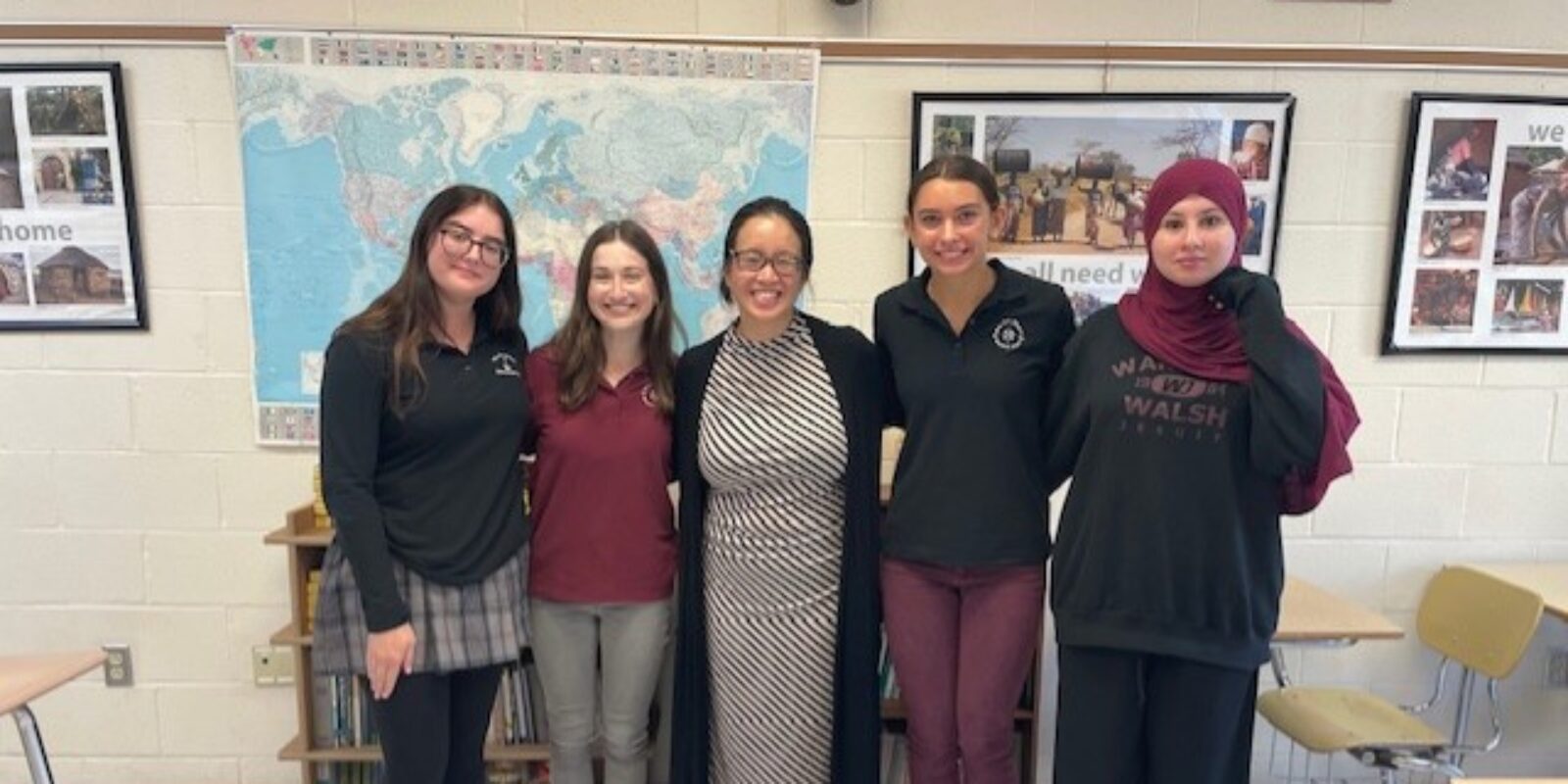Lebanon: Educational Boost for Refugee Children
20 October 2015|Jacquelyn Pavilon, JRS International Communications Officer

“Growing up everything was good,” said Catherine Mora, a Syrian refugee and teacher at the Jesuit Refugee Service center in Jbeil. “That is until the war started. It was hard to believe what was happening was real. They just shoot, not thinking people are actually walking there. When I went to teach each day, I would say goodbye to my mom. You walk out of your house never knowing if you’re coming back.”
Catherine describes growing up in Syria. “I was happy with my friends, my family. I used to be a girl scout for 15 years and loved camping.” After graduating from the University of Aleppo, she had her dream job teaching in a private school in Syria. “I struggled not to leave Syria, but after three years of struggling, we couldn’t stay anymore.” By the time that Catherine left with her family, the situation in Aleppo had deteriorated immensely. Electricity and water were scarce, there were mortars and bombings daily. What she misses most is being near her family, who, she said, is now scattered all over the world.
In the Beginning
Catherine has been teaching at the JRS Jbeil center as an English teacher for two sessions now, or approximately one year. When she started her first session, the children were shy, sad. They couldn’t look at you in the eye out of fear, clearly a reflection on their past trauma through the war.”They used to fight when they played,” she recalls. “It was all they knew.” The Jbeil center has approximately 500 children – 250 in the morning and 250 in the afternoon. The center serves as a holistic care center, providing children language support, and other services.
“Many of the children at our center have been out of school two to three years,” Catherine explains. “When they arrive to us, they are basically starting from scratch.”
A Change of Pace
However, after just two sessions, the children have improved beyond measure. They can communicate in English as they laugh, speak, and sing. They also know how to be self-sufficient and polite, and above all they know how to take care of themselves.
The center provides psychosocial support in addition to educational support. Part of the counseling includes group Peace Education classes, through which the children learn how to play in a non-violent way and resolve conflict amongst themselves. “They children no longer fight when they play. Rather, they play with each other. Sometimes I see them playing ‘English class’ at recess, where one is imitating the student and one is imitating me as the teacher. When I see this, I feel their progress.”
Each student’s situation is unique, and each still lives a transient life. “You may see them today, then you may not see them tomorrow. This is their story.” Yet, while the children are in the center, JRS tries to form a community in which the children have a friend network and feel comfortable. The aim of the Jbeil program is to provide remedial support for children so that they are able to transition children into the Lebanese public system. “When I see the children moving to government schools, I know we’ve put them on the right track. They have ‘made it’ in a sense. We need to get all the children off the waiting list.”
“JRS is a happy atmosphere for these children. It is their hope. We love them; they love us; and when you see their eyes looking at you, you feel their hope. We feel responsible to be that hope for them, but what’s more, they give us hope.”


